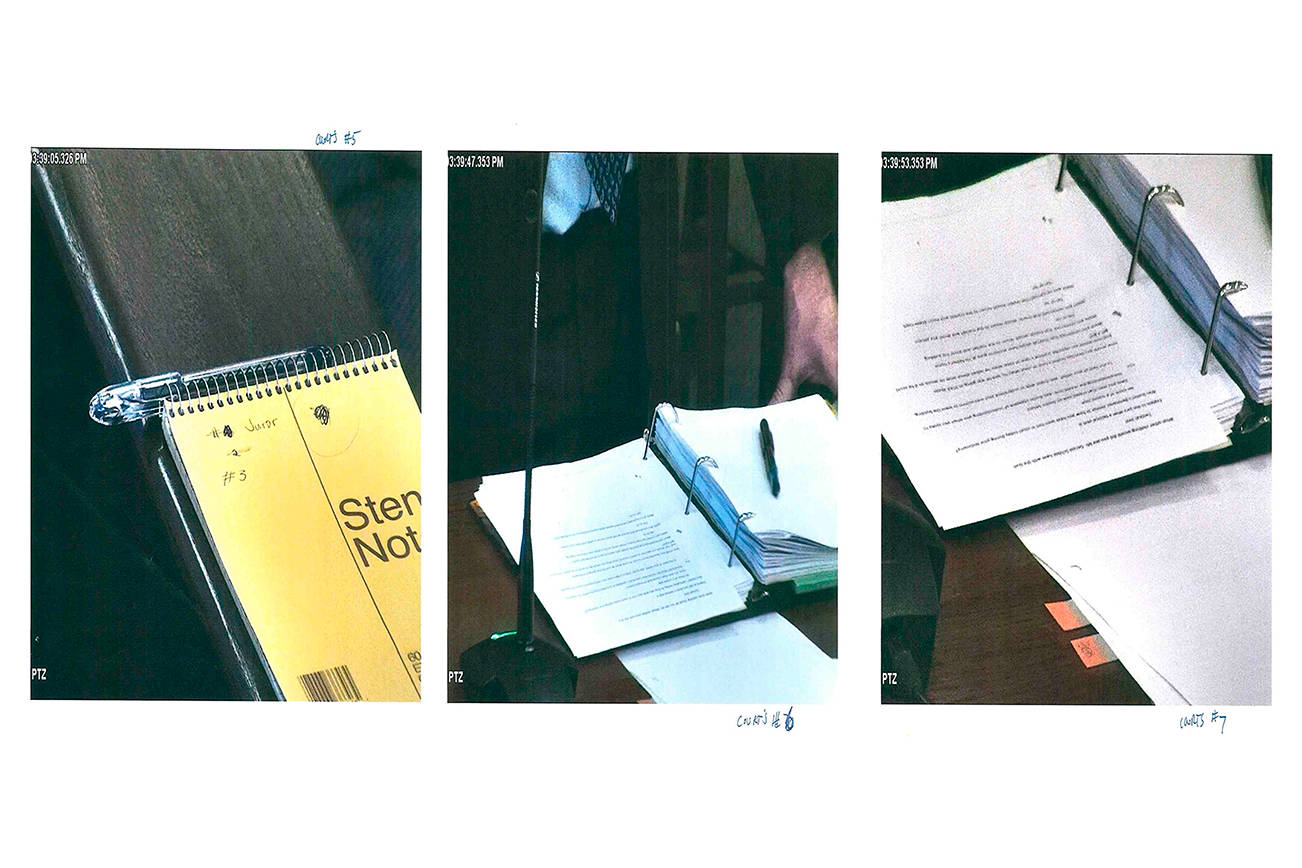A criminal case being tried in San Juan County District Court has been dismissed with prejudice due to misconduct by a county employee.
On Saturday, Feb. 2, Judge Donald Eaton, acting as a temporary district court judge, dismissed the charges against Dustin Schible of Lopez Island for criminal trespass, assault in the fourth degree and harassment. The case was being tried in district court because the charges were misdemeanors and a gross misdemeanor.
According to a complaint filed Oct. 31, 2018, Schible, 32, of Lopez, allegedly entered the Lopez Village Market and harassed and assaulted employees on Sept. 27. Schible arrived at the market shortly before closing, while employees were processing the last customers. An employee was stationed by the locked front door to open it, allowing customers only to exit.
According to court documents, Schible allegedly banged on the door with a metal trash can lid. The employee opened the door to tell Schible that he would not be admitted into the store, during which he reportedly shoved his way into the door, forcibly moved the victim and shouted: “I win.”
Schible was then approached by another store employee, according to court documents. He allegedly threatened the second victim with a knife. A third employee stepped in and was able to get him to leave.
Schible then returned to his vehicle, where he allegedly yelled, “I’m going to get guns and return to kill you [people].” A fourth employee phoned 911 for assistance and a deputy visited Schible’s home and placed him under arrest.
During the trial on Jan. 31, a court security camera zoomed in on various locations around the room, including on a closed jury notebook, a prosecution exhibit, the prosecutor and the defense’s paperwork. Superior Court Administrator Jane Severin was watching live footage of the case on her computer and noticed the zooming action, she then told Superior Court Judge Kathryn Loring and then Eaton was altered, according to Prosecuting Attorney Randy Gaylord.
Gaylord said the zoom was quick and the documents were mostly illegible. It was the final zoom action into the defense’s paperwork that Eaton ruled caused prejudice in the case. Gaylord said he only saw stills taken from the video during the consideration hearing on Feb. 2.
The camera was being operated by someone in the San Juan County Sheriff’s Office or the information technology department at the time of the incident. The prosecution did not see the video before it was aired in court, and therefore claimed that it did not cause prejudice against the defendant, Gaylord said.
The defense team brought a motion to dismiss the case around midday on Feb. 1, Gaylord said.
According to Sheriff Ron Krebs, the courtroom was expected to be high tension given the defendant’s previous alleged threats of violence, and he was asked Gaylord to provide extra security to the courthouse for that reason. Due to staffing restrictions, Krebs said he was unable to have a deputy at the courthouse and resorted to checking on the security camera, instead.
Unfamiliar with the way the system operates, Krebs said he double-clicked on the camera to make it full screen and inadvertently zoomed in. The video feed is in the dispatch office. He said it was only on the documents for five to 10 seconds and nothing was legible.
“There is no evidence to suggest that Sheriff Krebs knowingly or intentionally captured the attorney’s table materials for the purpose of capturing information that would be useful for any purpose,” Gaylord wrote in a memo opposing the motion to dismiss.
According to Gaylord, prejudice can only occur if the notes were able to be read. He wrote that to describe the camera movements as misconduct is going “too far.” He said all that was legible on the defense’s notes were a date, a name and a verb – none of which were unknown to the court.
“This is being blown way out of proportion,” Krebs told the Journal. “It was such an innocuous non-event.”
He didn’t think it was a big deal at the time and went back to work. When he was asked to give a statement on it, he said he willingly did so as it was not a purposeful act.
“I didn’t even think anything of it. … It’s never been done before and it, obviously, will never happen again,” Krebs said. “It’s unfortunate and disappointing for sure.”
On Feb. 4, the camera system was updated so that the cameras in the courtrooms can no longer be manipulated or zoom in as it did during the trial.
“We’re frustrated by the court’s ruling and terribly frustrated by what happened,” Gaylord told the Journal. “It was improvident, seemingly inadvertent without any desire to read the materials. The materials were unreadable on the tables due to to the angle and the resolution.”
Krebs and Gaylord are requesting that the video not be made public because it can provide details regarding the security of the courtroom – such as areas where a camera does not see.
“In my opinion, based on my years of experience in law enforcement, disclosure of the surveillance video footage would result in weakening of the San Juan County courthouse security,” Krebs said in a declaration filed Feb. 2. “I believe the nondisclosure of this specific and unique intelligence information is essential to effective law enforcement.”
A hearing to determine whether the video will be made public is scheduled for 2 p.m. on Feb. 12.




